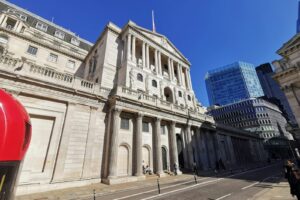With 40 different bills announced in the King’s Speech today as part of the State Opening of Parliament, there is much for wealth managers to consider. Much attention involves looking at the new Pension Schemes Bill, but there were plenty of other areas announced as part of the focus on growth, which have generated reaction from across the industry and further afield as follows:
Paul Diggle, chief economist at abrdn, comments on the new OBR requirement saying:
“There is certainly a sense in which a legal requirement for the OBR to assess government fiscal events is aimed directly at the short-lived Truss experiment, when the OBR was left out of the mini-Budget with disastrous consequences. It won’t make a practical difference to how the Labour government does fiscal policy, because it was always going to involve the OBR anyway. But it is part of Labour’s efforts to project fiscal and economic prudence, and keep financial markets on side. The litmus test of success for Labour will be whether they can get UK growth going again, which is going to require difficult reform of the planning system, green industrial policy, and a potentially closer relationship with the EU.“
Commenting on the King’s Speech, Chris Cummings, CEO of the Investment Association, said: “We welcome the Government’s focus on securing economic stability and growth, encouraging investment, and improving people’s financial futures through wealth creation. Today’s speech offers a forward-looking plan which recognises the importance of partnership with the private sector, and the investment management industry will play an active role in achieving these aims.
“By taking into account the individual needs of investors and the role the pensions system can play in delivering growth, there is great potential to benefit both UK households and our economy. The proposed Pensions Scheme Bill will be fundamental in taking this agenda forward. The focus on implementing a Value for Money framework for Defined Contribution Schemes will place a greater emphasis on value, rather than a narrow focus on cost, leading to improved outcomes for consumers. We would encourage the government to go further to empower more individuals to invest for their futures, by broadening access to financial advice and guidance.
“We are pleased that the Government has listened to investors and will deliver on the creation of a new empowered regulator, the Audit, Reporting and Governance Authority (ARGA), as part of the draft Audit Reform and Corporate Governance Bill. Putting ARGA on a statutory footing will provide a boost to trust, transparency and accountability in UK companies, auditors and capital markets and reinforce the UK as a trusted location for investment.
“Enshrining the National Wealth Fund in legislation is a clear signal from the government of their intent to mobilise much needed capital for green investments. The Climate Change Committee estimates that an additional £50-£60 billion of capital investment will be required every year over the next decade to deliver the UK’s net zero ambitions, and there is an urgent need to build the pipeline of investable infrastructure projects in the UK to support this. We strongly support this ambition to channel much needed capital into British businesses and infrastructure projects to cement the UK as a leader in sustainable finance.”
Commenting on Labour’s plans to remove the exemption from VAT for private school fees, Sarah Jane Boon, a Partner in the Family team at Charles Russell Speechlys, said: “ Parents of children at independent schools will be used to regularly assessing the affordability of school fees against their finances – school fees have increased ahead of inflation for the past 25 years – but families could now be hit with significantly increased fees as soon as the next academic year.
“This possibility may be especially worrying for separated or divorced parents, who are committed to a court-imposed obligation to discharge school fees until their children reach the end of their secondary education. If Labour do form the next government, there may be increasing numbers of parents who seek to vary their court obligations on the grounds of affordability.
“Separated couples often struggle with funding two households on divorce. The decision as to where children are educated falls to both parents to be agreed under their parental responsibility, so disagreements over such issues can lead to litigation – with the court making the ultimate decision.”
Juliet Phillips, Programme Lead Energy Transition, at independent climate change think tank, E3G said: “The election result has given the new Labour government a clear mandate to turn the UK into a green energy superpower. New primary powers will help Labour enact its ambitious vision, and provide support for workers, communities and local authorities.
The King’s Speech has kick-started a new legislative agenda on energy, renters’ rights and local powers – all areas that will be crucial to put the country back on track to meet climate and fuel poverty targets. It is vital that the government use new bills to support a just transition away from oil and gas, support vulnerable households to lower energy bills, and accelerate the clean power transition.”
Heather McKay, Senior Policy Advisor, E3G said: “The last Government was infamous for its delay on green, so it is welcome to see Labour fast out the blocks by centring green growth in today’s King’s Speech. It’s welcome to hear the clear recognition of the economic opportunities that UK Net Zero promises – at home and abroad. Delivering this goal requires a plan to drive green investment fast. The industrial strategy council must centre green if it is to deliver prosperity, jobs and climate safety for Britain”
Mike Suffield, Director of Policy and Insight at global Accountancy Body, ACCA , said: “Audit reform has been severely overdue in the UK, yet repeated delays have sidelined it, despite the importance of it in promoting the UK as a great place to do business. ACCA has long called for this implementation, so to see it included in the King’s Speech as one of the first points of the speech is a huge step forward.
“Legislation will place the planned new regulator, the Audit, Reporting and Governance Authority (ARGA), on a statutory footing and will set out clear expectations and accountability for Boards, management and auditors.
“The shift of the FRC to ARGA as a clear independent watchdog will strengthen the oversight of audit quality so that audit firms can be held properly to account, introducing changes that have been needed since the collapse of Carillion in 2018.”
Jessica Bingham, Regional Lead, Policy and Insights at ACCA said: “The devolution to give more local authorities power away from Westminster is a reflection of recent changes in the UK, such as with increased powers for regional Mayors. It recognises the importance of local people doing local work, putting budgets and resources to use in the places where they are most needed.
“However, ACCA urges caution when devolving budgets to local authorities who are not set up with proper audit and corporate governance processes. It is important to ensure that devolution is an effective handing-over of power, equipping all parties with the skills and resources they need to make it a success.
“A transition to local authority powers will empower regions and has the potential to divert more money and resource to where it’s needed most, but there needs to be a firm hand guiding the tiller of finances and a steady, measured approach to change.”
Dr Rhian-Mari Thomas, CEO of the Green Finance Institute and Chair of the National Wealth Fund Taskforce said: “Setting out the National Wealth Fund as a key priority demonstrates the Government’s determination to reshape the way we approach public, private risk-sharing, providing private investors with the confidence needed to invest in technologies and infrastructure that will drive growth and create jobs.
“Implementing the recommendations made by the Taskforce will drive investment into priority areas, accelerate the decarbonisation of our economy and position the UK for increased international investment. Yet time is of the essence. We need the Government to maintain the momentum that has characterised the work of the Taskforce to date so that capital is deployed at pace.”
Alex Ranahan, Tax Reporting Analyst at FSL, offers his thoughts on the King’s speech saying firstly on tax : “The fact that no significant personal tax changes, or changes to how investment is taxed, have been announced in this speech is rather concerning. Economists up and down the land are unanimous that the current tax and spending plans are not sufficient to fund public services in line with inflation. There can be no doubt that the government won on a mandate to reform and improve public services, and the fact that we may have to wait until an autumn budget to find out any details of the government’s thinking makes it difficult for individuals, businesses, and investors to plan ahead.”
Commenting ont the OBR plans, Ranahan said: “We will read the government bill requiring the OBR to assess all significant tax and spending changes with interest. One might presume it will simply mean finance bills, but given the propensity of governments of all stripes to introduce significant tax changes through statutory instruments and other means besides finance bills, could this mean the OBR becomes an obstacle to ordinary workings of government?”
James Marlow, Managing Associate at Linklaters ESG practice commenting on next steps and Labour’s green agenda said: “Labour are keen on co-investment between the public and private sectors. The new National Wealth Fund, which is one of the central planks of its net zero strategy, will have a target of attracting £3 of private investment for every £1 of public investment. The NWF and GBE combined are intended to catalyse large amounts of public-private sector investment and reshape the approach to risk-sharing. Labour also want to increase investment from pension funds in UK markets and infrastructure.
“Overall, the new government’s net zero agenda has been met with optimism by many in the private sector, who are hoping the change in government will be an opportunity for a reset. Above all, investors and businesses want clarity and certainty. Labour has made it clear that it sees the future competitiveness of the UK as inextricably linked to the net zero agenda and it wants to make the UK an attractive investment destination, as well as enabling it to export leading clean technologies.”
Commenting on the King’s Speech, ABI Director General Hannah Gurga said: “Today’s King’s Speech sets out a bold plan for growth and investment as well as steps to support a healthy workforce. We share the Government’s ambition, and the insurance and long-term savings sector stands ready as a partner to find solutions to some of the country’s biggest challenges.
“We support the Government’s plans to remove barriers to energy infrastructure investment and their proposed planning reforms, which are key to unlocking our industry’s full potential to invest in green and good projects. Through our Investment Delivery Forum, we continue to work with our members to drive and track funding into suitable projects, to deliver the best returns possible for customers, the economy and environment.”
Melissa Blissett, Pay Gap Analytics Lead at independent consultancy, Barnett Waddingham, says: “The government has clearly signalled its intention to tackle gender inequality head on with a raft of radical workplace measures announced at the King’s speech today: Flexible working becoming default for all workers is a significant step in achieving gender equity and supporting women in their careers – thus reducing the gender pay gap. And as low pay is a gendered issue too women should reap the benefit of the introduction of a genuine living wage as well. But as the Government has yet to make good its promise to “take the brakes” off the economy, fulfilling these promises risks using up a large proportion of the funding earmarked for pay rises – leading to pressure for middle income earners. So employers will need to make sure they don’t inadvertently hold back the career and pay prospects for middle income women, which could slow any progress on closing the gender pay gap”














